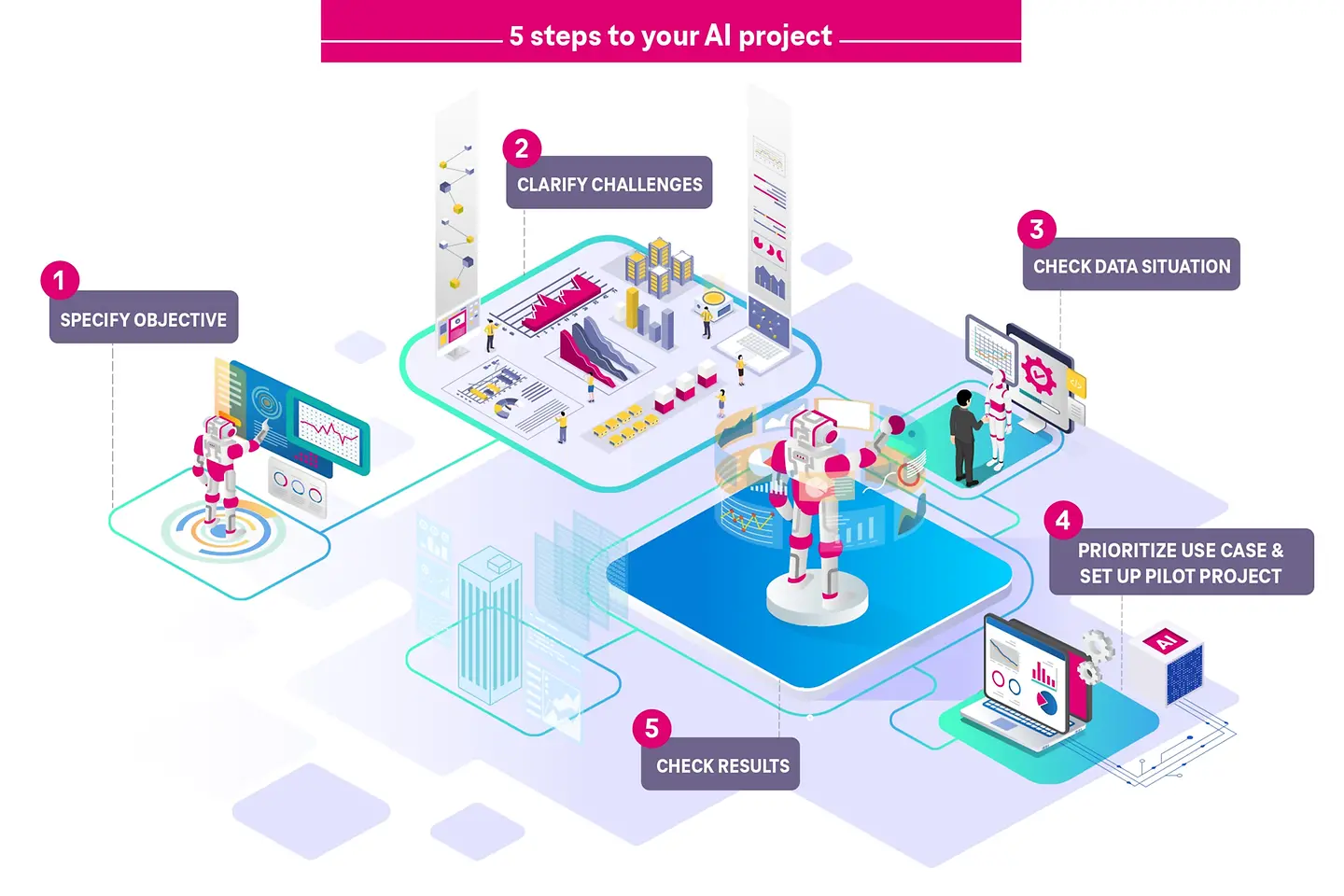
Generative AI is also sparking a trend in the retail sector. Big companies are forging ahead with digital AI assistants and smart applications. But for small and medium-sized companies, too, artificial intelligence can prove worthwhile. And with the right partner, the expense and personnel costs remain manageable.

When I order something online, I scroll through the customer reviews. Are the pants on the small side or somewhat larger? Is the sweater cozy and easy to wash? For me, these reviews are an important source of information. But it has to be said, sometimes it’s annoying to have to sift through a lot of reviews before I find the information I need. Which is why an innovation from the Otto Group immediately had me intrigued. An assistant based on generative AI has been tested in their online store since the summer. If I want to know whether a refrigerator model is loud, in the future I'll ask the AI. I receive the answer within a few seconds. The artificial intelligence uses the available product reviews and descriptions as a database. The feature is available for 180,000 products and is being well received by customers: 80 percent of the responses generated are described as helpful.
With ogGPT, the Otto Group has developed its own ChatGPT and is encouraging its own employees to explore the possibilities of artificial intelligence and big data. Back in the summer, the drugstore chain dm developed an internal, data-protection-compliant tool with generative AI. But it is not only since the introduction of generative AI that retailers have been using artificial intelligence to better equip themselves technologically for the future. Right now the Schwarz Group (Lidl, Kaufland) is even building an entire AI campus in Heilbronn. Metro and Douglas are also among the digital pioneers in the retail sector when it comes to AI. But what about small and medium-sized retailers? Are they missing the trend? Or do they lack the financial resources and specialists to take advantage of the opportunities offered by artificial intelligence? What do they need to exploit the potential?
Unfortunately, AI remains very underused in the retail sector: According to a survey by the German Retail Federation, more than 20 percent of the stores surveyed use AI technology. Two thirds of respondents do not currently use artificial intelligence and do not plan to use it. Why? Because companies lack specific use cases, and they also shy away from the costs. And they often simply lack the prerequisites to work with artificial intelligence. They lack high-quality data and a powerful IT infrastructure that can process large volumes of data. Even those companies that do make use of artificial intelligence usually only use it in the form of individual solutions – for example in camera systems for theft protection. Small and medium-sized companies rarely develop a comprehensive strategy. At the same time, the industry has a long wishlist for AI: more efficiency, better customer service, and personalized offers.
The range of possibilities in retail is huge:
The list could go on and on: For example, intelligent camera technology can detect gaps on the shelves – and thus guarantee that customers will always find their favorite toothpaste in store. At the same time, the algorithms make retailers more sustainable, because they can use intelligent forecasts to prevent them from ordering too many perishable goods.
Many small and medium-sized retail companies need expert support if they want to implement their own AI projects or are aiming for a complete AI transformation. They need a partner who can provide them with comprehensive support from the development of the AI project to the final rollout and who can also operate the application if required. One who is familiar with the data protection risks of artificial intelligence and understands its potential for the industry. At T-Systems, we use our expertise to reduce complexity for the customer and work with them to develop an AI strategy and roadmap. I like to compare our job to that of a wedding planner. Like a planner, we are also responsible for ensuring that the project is as simple as possible for our customers, that the costs do not get out of hand, and that the result satisfies everyone.

AI projects cannot be lumped together. Some are designed to ensure greater efficiency in store, others to optimize the customer experience in e-commerce. But the following steps are crucial if you’re going to achieve the best possible result.
Artificial intelligence needs good data, and lots of it. Plus an IT infrastructure that can process the large amount of information. As most companies lack storage space on their own servers, they should work with their partner to check which cloud offerings are suitable for their AI project. When choosing the right partner, you should therefore make sure that they are just as familiar with hardware and software as they are with the various cloud platforms. Specify a point in time with them for measuring the success of the pilot. Check whether AI increases efficiency or effectiveness, and whether you work more sustainably with it. Ideally, the technology should really offer several advantages. Your customers might enjoy greater convenience, for example, and a better customer experience.
What experiences have you had with artificial intelligence? Which AI project went well? Where were there surprising stumbling blocks – and how did you overcome them? I would be delighted to exchange some thoughts with you. Perhaps we can also develop an AI scenario together that would be interesting for the entire industry. Interested? Feel free to contact me for a conversation!
You can display all external content on the website at this point.
I agree that personal data may be transmitted to third-party platforms. Read more about this in our privacy policy.